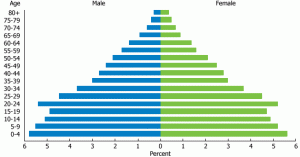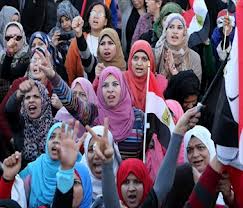Water, Women, and Youth in the Land of the Pharaohs
Jun 20th, 2013 | By admin | Category: Social Justice, Youth RightsBy Suzanne York, www.howmany.org
With all the media focus on the NSA spying scandal, you might have missed the news that Egypt and Ethiopia – the second and third most populous countries in Africa, respectively – are coming into a war of words over a proposed dam on the Nile. Though tensions have eased somewhat, it is still a situation to watch closely.
After being on the drawing board for decades, Ethiopia decided to move ahead with the $4.8 billion Great Renaissance Dam in the headwaters of the Nile. Egypt relies on the river for nearly all of its water needs and the government has said the construction of the dam is a security concern.
Dam or no dam, Egypt is in a precarious water situation: The United Nations has warnedthat it could run out of water by 2025.Beyond the serious environmental issues and political significance of this dam, what are the impacts on people – namely Egyptian youth and women – in a country in democratic transition with pressing resource challenges?
Egypt’s Youth Bulge
Egypt has a population of 84 million people (projected to be 135 million by 20050) in a country that is 90 percent desert. About 95 percent of Egyptians live along the Nile, on less than 5 percent of Egypt’s territory. The Nile Valley is one of the world’s most densely populated areas, with an average of 3,820 persons per square mile.
This is a youthful nation. According to Population Reference Bureau, one in five Egyptians is between ages 15 and 24, and one-half of the population is below age 25. Unemployment among youth is high (nearly 77 percent of the unemployed are between the ages of 15 and 29), and this poses a potential threat to stability and transition to a more democratic state.
The youth ignited the Arab Spring. Their voices need to be heard, and should be part of building a “new Egypt” and finding solutions to environmental and social problems.
Focus on Women
Egyptian women make half of the population, and since the Arab Spring in 2011, are facing more challenges. Up until the new Islamic government, Egypt has had a good hold on lowering birth rates and supporting family planning. Today the national birthrate is increasing, and while President Morsi has continued the financing of family planning programs, officials have avoided public discussion about population growth. There is concern that it is off the policy table.
Women are fighting to be included in the government, and to protect their rights. As reported earlier this year in The Guardian, “The new constitution has swept away recognition of women’s rights and left the door open to the legalization of perhaps Egypt’s most crippling social issue – underage marriage. Draft legislation that would allow the legal age of marriage to be lowered from 18 to 13 has been drawn up while clerics within the Muslim Brotherhood have indicated that marriage at the age of nine for girls is acceptable.”The Need for Global Support
The challenges are enormous and numerous. Just transitioning into a democratic state would be difficult enough; a large youth population, a questionable state of women’s rights, and looming resource shortages exacerbated by climate change or upstream dams throws everything to the wind.
Egypt and the world should prioritize the rights of youth and women in emerging democracies. They need sustainable livelihoods, education, healthcare, and family planning services. Above all, the voices of women and youth need to be heard and protected.
Suzanne York is a senior writer with the Institute for Population Studies.



